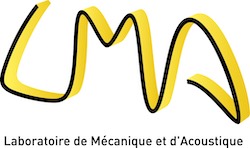High-order accurate methods seem to be particularly competitive in the framework of wave propagation, especially when waves are propagated over long distances and/or for long periods of time. This is mainly due to the lower dissipation and dispersion of high-order methods , when compared to some low order methods currently used in commercial and industrial software.
In computational electromagnetics, wave scattering simulations are of major importance due to the large number of applications that involve such phenomenon (e.g. defence, medicine, security) . In this scenario, the potential benefits of high-order methods can be hampered by an inaccurate geometric representation of the scattering objects. The issue is caused by the inability to make the geometric model persistent throughout the whole simulation process. In many cases, the geometric model is only used during the mesh generation stage and, once the mesh is generated , an approximated geometric model is inherited by the solver.
In this talk, two techniques to ensure persistence of the geometric model during a simulation will be discussed. The first technique is suitable for mesh-fitted methods and requires the generalisation of the integration and the interpolation strategies typically employed in a finite element solver. The second technique removes the difficult task of generating high-order curvilinear meshes by embedding the geometric model in a Cartesian grid. In both cases, examples will be shown by employing a high-order discontinuous Galerkin formulation for the solution of the transient Maxwell’s equations.


